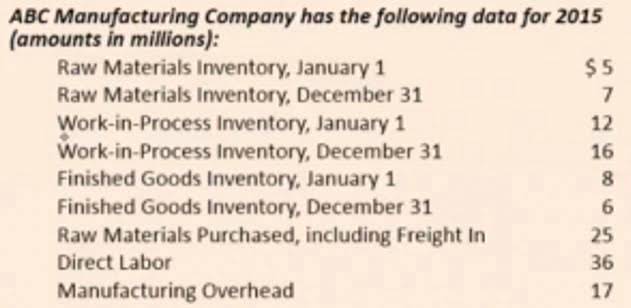
Now that we’ve covered bookkeepers versus accountants and the language of money, it’s time to build your church’s financial sanctuary. We have several colleges that use our program to educate students about fund accounting and stewardship. If you do share a portion of our articles, we ask that you attribute Aplos Software as the author and provide a link to the full content on our site if possible.
Churches should use fund accounting
This might look like assigning an elder to oversee spending or appointing multiple trusted individuals to approve major expenses. Working with a third-party accounting firm can also increase accountability, as it entirely removes bias and personal interest from the equation. We already touched on how accounting naturally makes a church more accountable. It tracks income and expenses and ensures that money is collected and spent in a God-honoring and accurate manner. An external audit, usually conducted annually, provides an unbiased review of the church’s financial statements. Churches with employees must also send their staff W-2s yearly at the end of the fiscal year.

The Chart of Accounts: Your Church’s Financial Blueprint
Nor is it a comprehensive resource for making your church’s tax decisions. That said, it’s helpful to at least have a rough idea of what the church’s relationship with Uncle Sam looks like. A full-blown breakdown of how each church needs to approach taxes and legal reporting is far too complicated, even for a resource like this.
What are the Principles of Effective Church Financial Management?
- That’s right, the depth and breadth of your ministry’s story—much of the heart-lifting, life-changing impact you’re making—is hiding in a spreadsheet and waiting to be revealed.
- Church financial management is the systematic and responsible oversight of a religious organization’s financial resources and assets, typically a church or religious institution.
- It can implement current options, like text-to-give and QR codes, and can continue to integrate whatever cutting-edge future giving options develop over time.
- A stipend is a small salary (usually in the education world) to cover expenses for someone like an intern.
- A church’s or religious organization’s board or financial oversight committee usually endorses various financial reports and statements to maintain financial transparency.
- It requires insights gleaned from up-to-date information and presented by trained professionals capable of properly interpreting and executing legal responsibilities.
- Fund accounting helps churches sort income by how it’s collected and used.
Church accounting refers to the organization, recording, and planning of a church’s finances. The process of church accounting is most similar to nonprofit accounting, since every church is also required to reinvest all of its funds into the organization and its mission. However, there are a few small differences between the two that we’ll cover in more detail later.

Implementing fund accounting on your statement of financial position and statement of activities will give a clear and precise snapshot of the church’s financial health. This will assist https://www.instagram.com/bookstime_inc you and your finance committee when it comes to spending and making strategic decisions about the direction of the church. Accounting software handles tithing, other forms of contributions, and fundraising events. The software should also handle administrative work, like incoming and outgoing payments, and budgets. For this reason, you need church accounting software designed to handle fund accounting.
Don’t Skimp On Investing in Accounting
Your church’s accounting software plays an important part in this process. The church budget ensures that spending in your church is aligned with the mission and vision laid out https://www.bookstime.com/ by church leaders. This should be complete and in place by the start of the fiscal year – but the process should begin 3-4 months before then. When you’re training people on accounting processes, keep the church’s vision before them. Help them understand your leadership team constructed the budget to accomplish the church’s goals of reaching and helping people. But some churches, often innocently, think it’s OK to game the system.
W-2 forms are also important for employees and payroll, as is Form 1099 for contractors. Since this is the case, Churches don’t benefit from a general accounting method approach. Instead, their goal, financially speaking, is to invest the income they generate into the right areas. On top of that, when you have your financial “ducks in a row,” it makes it easier to create more focused fundraisers. When you have up-to-date knowledge of your finances, you don’t have to settle for vague or haphazard benchmarks. You can confidently set up precise goals for the upcoming 12-month period that are well-informed and have maximum impact.


The Statement of Financial Position is a vital financial report for nonprofit organizations that offers a comprehensive view of their financial health at a specific point in time. It focuses on the organization’s revenues, expenses, and the net change in its assets over that period. The primary purpose of this report is to provide a transparent and detailed overview of an organization’s financial activities, emphasizing how they align with the mission and objectives. As a church leader, people trust you to handle their donations wisely. Whether you are new to ministry or a seasoned veteran, it’s easy to see there is more to managing church finances than meets the eye.
- A budget provides the financial data to predict expenses, support decisions on resource allocations, and plan fundraising activities.
- You’ll need the bank and other financial statements before you can begin.
- Receiving donations is the largest part of the revenue of a church, and some guidelines go along with receiving those donations.
- You’re probably not a financial-loving, detail-oriented nerd who has all the time in the world to double-check expenses (like we are!).
- On the one hand, badly handled or neglected finances can cripple a church over time.
Church Accounting 101 = Keeping Your Money on Mission
- That leads into Step 6 … if you have a great payroll platform, that platform will typically file those forms on your behalf.
- However, sometimes people give money for a specific purpose, like a new piano or supporting a specific missionary.
- Make sure your accounting solution can handle the unique aspects of church accounting discussed above, such as categorizing multiple revenue streams and creating the financial statements used by nonprofits.
- Faith also changes how you measure, consider, and utilize the finances your church is responsible for stewarding.
- They are limited by specific rules, such as not participating in excessive political lobbying and ensuring their earnings are mostly allocated to charitable, educational, or religious endeavors.
For larger churches, having dedicated professionals for each role is ideal. Every church, regardless of size, needs a solid financial foundation. But stewardship in a ministry goes beyond church accounting best practices just keeping the books balanced.